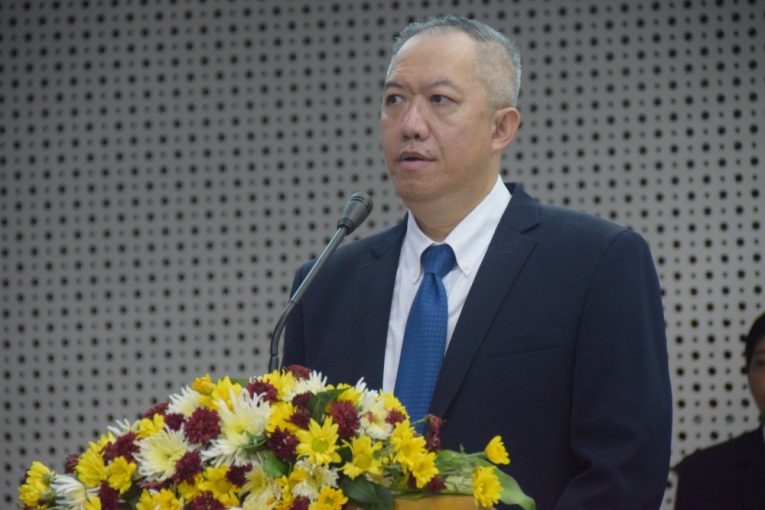



Yogyakarta, the Graduate School (SPs) of Gadjah Mada University held an open doctoral promotion exam for Adi Widjaya Gunawan from the Leadership and Policy Innovation Study Program (Policy Studies) at the Auditorium of the Postgraduate School, on Monday (11/11/2019).
On this occasion, Adi presented the results of his dissertation research entitled Construction of Education Policy and Hypnotherapy Services based on Field Practices and Community Acceptance. Adi said that the hypnotherapy practitioner is one of the manifestations of the Non-Communicable Diseases assisting profession which is mentioned in the Sustainable Development Goals (SDGs) or Sustainable Development Goals (TPB).
The development of hypnotherapy as a profession requires scientific improvement and sharpening both through research and scientific publications as in other professions. Therefore, Adi formulated the problem in his research to analyze the patterns of education, training, service practices, and the development of hypnotherapy practice in the cities of Bandung, Surabaya, Jakarta and Yogyakarta. Then the other problem formulation is how the acceptance by users and the responses of hypnotherapy practitioners which lead to an analysis of the construction of education policies and hypnotherapy services that can protect and prosper citizens.
Based on Adi's dissertation research, there are 12 hypnotherapy training institutions and not one hypnotherapy training institution has an accredited status from BAN PAUD-PNF, so there is also no guarantee that graduates of hypnotherapy training institutions have the competence required in the laws and regulations that govern. Complementary traditional health services though.
So the findings of this research are (1) the pattern of hypnotherapy training is very diverse but does not heed the laws and regulations governing national education standards; (2) hypnotherapy practice takes place without regulation and anyone can practice hypnotherapy, so that there has never been any prohibition or punishment for cases that endanger or harm society; (3) periodization of hypnosis practice in Indonesia takes place in three stages, namely the initial wave of entertainment hypnosis, the second wave of pioneering hypnotherapy, and the third wave of hypnotherapy specialization; and (4) construction of education policies and hypnotherapy services as complementary alternative medicine aimed at protecting and welfare of citizens.
The areas that must be regulated in this public policy are the fulfillment of national education standards, professional competency registration and certification, hypnotherapy service standards, research and development programs, client cases and complaints, and enforcement of the hypnotherapist's code of ethics by the hypnotherapy ethical board formed by the Hypnotherapy Association. Indonesia.
The results of the dissertation were presented so well by Adi that he was declared to have passed as a doctor with honors. (SPs / Azrina)
